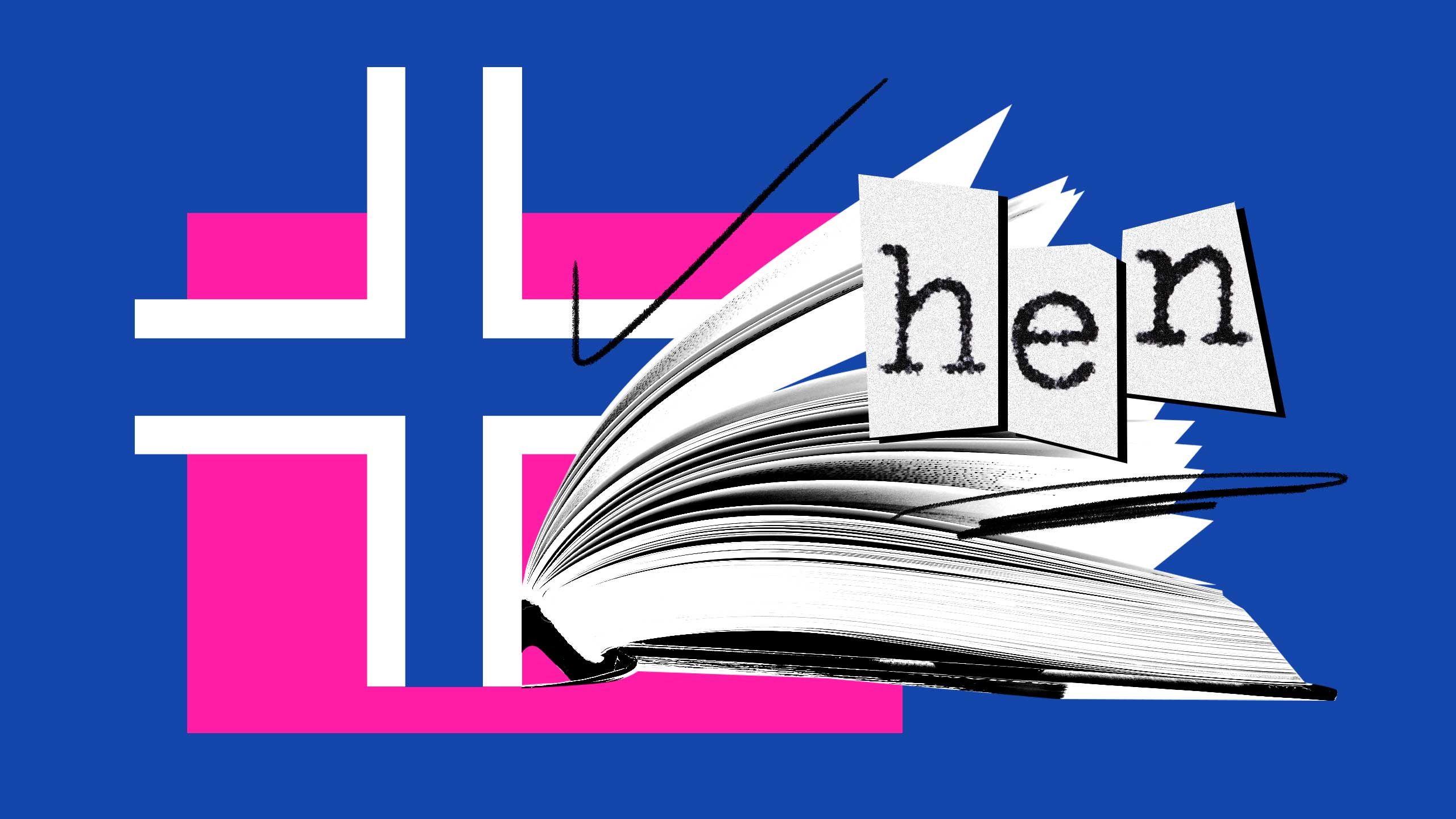There’s a new “hen”’ in the coop—and we’re not talking about chickens.
The Language Council of Norway announced on Feb. 2 that the gender-neutral pronoun “hen” is likely to become an official word in the Norwegian language and would be added to its national dictionaries. If confirmed, the Scandinavian country will join its neighbour Sweden, which embraced “hen” in 2015, in using the word as an alternative to masculine and feminine pronouns.
The Language Council is the country’s “consultative body on language issues,” according to its website, and works with the Ministry of Culture.
The Language Council’s section chief, Daniel Ims, clarified to Norwegian queer publication Blikk that the establishment of “hen” as an official pronoun remains in the proposal stage and has to be viewed by its members and stakeholders, such as other Norwegian institutions and government offices, before being added to Norway’s dictionaries. The Language Council’s board will then finalize the proposal after reviewing comments and publish its decision.
“I reckon that this can happen in the spring or early autumn,” Ims told Blikk.
While very few countries have supported official changes to their national language to include gender-neutral pronouns, the U.S., Australia and Canada have made a concerted effort to incorporate gender-neutral terms. America’s oldest dictionary, Merriam-Webster, made headlines in 2019 after it recognized “they” as a non-binary pronoun. In 2020, the Australian government recommended the use of gender-neutral language in all official state content, including digital products, reports and policy documents. And Canada’s Department of Justice has updated its recommendations regarding how gender-neutral words should be used in legislation.
But even in countries that have yet to formally embrace gender-neutral language, LGBTQ2S+ and allied communities are developing their own lexicons outside the binary. For example, “Latinx” is a popular gender-neutral term in the United States, and the Nonbinary Hebrew Project has created a third-gender in Hebrew—a language where every word is divided into masculine or feminine—by constructing a new suffix that fits a non-binary role.
Should Norway become the next country to introduce gender-neutral terms in its dictionary, advocates hope it will be a step toward greater legal recognition of non-binary people.
Despite having many legal protections for its queer and trans communities—including legal recognition of same-sex marriages and allowing trans people to change their gender without surgery—according to a 2020 report by the Organisation for Economic Co-operation and Development (OECD), Norway still does not have a non-binary gender option in its civil registery.
“But I hope that by getting hen into the dictionary we can get the idea out there, because there are many people who don’t feel at home in certain pronouns but don’t have the words to describe it,” Carl-Oscar Vik, who uses the Norwegian pronoun “de,” told U.K. newspaper The Guardian.


 Why you can trust Xtra
Why you can trust Xtra


